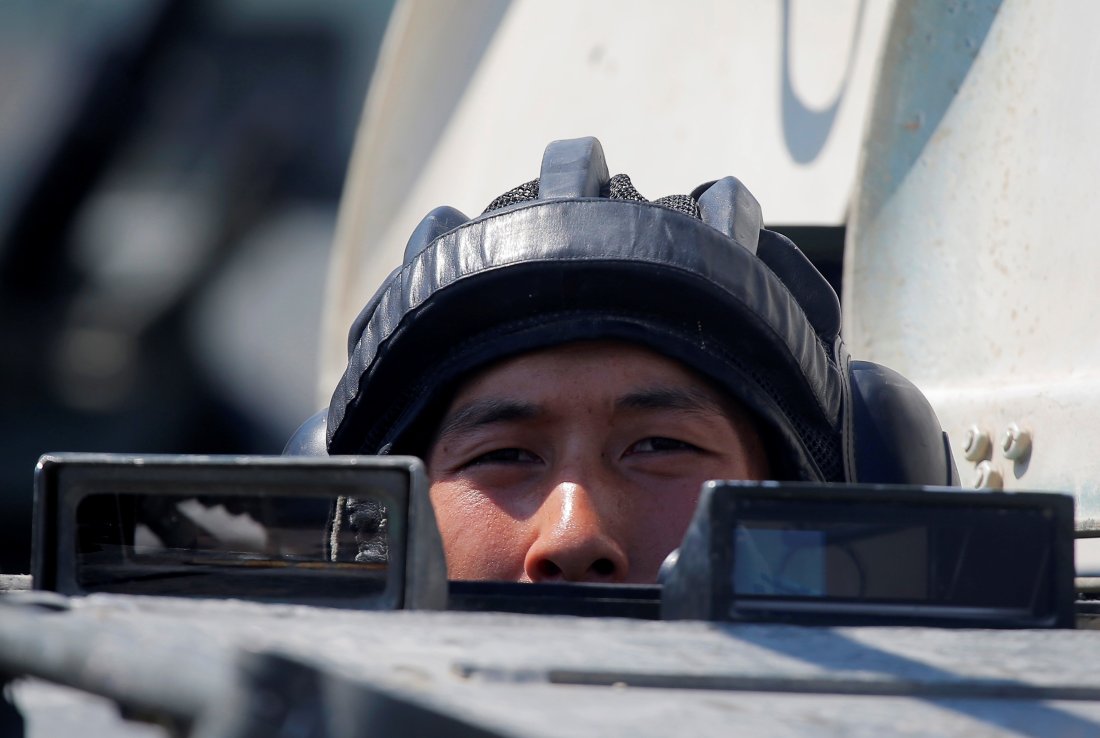
At present, even though China possesses the second-largest economy in the world, it still does not have the economic or technological base to challenge America in a symmetrical military matchup. What China can do is devise an asymmetric strategy that is designed to inflict maximum damage on American forces if they were to intervene militarily close to China’s perceived interests along its coasts and out towards the first island chain.Over several years in this publication, I have been exploring the dynamics of the budding U.S.-China security dilemma —a high-tech drama pitting anti-access/area-denial (A2/AD) against what we used to refer to as Air-Sea Battle (ASB)— and have offered several different ways to lessen the possibility of such a dynamic from becoming cemented into the Asia-Pacific’s security architecture . However, China’s development and implementation of A2/AD clearly has various origins. One such origin that deserves to be explored is the “historical nightmare” of China’s subjugation at the hands of various colonial and Asian powers.(This first appeared several years ago.)In many respects, China is trying to solve a centuries-old problem that never went away: how to defeat in battle military forces that are at least in a symmetrical sense superior to its own and will be for some time to come. If we alter our perspective and take a much longer view of Beijing’s own military obsolescence, a strategy that emphasizes anti-access makes tremendous sense. According to Admiral Wu Shengli, former commander of the PLA Navy, “in China’s modern history, imperialist and colonists initiated more than 470 invasions of China, including 84 large ones, from the sea.” If China’s military were to deter or halt the deployment of superior military forces into areas of Chinese territory or areas Beijing perceives as a core interest, another period of what leaders in China might see as a new form of subjugation could theoretically be avoided. A2/AD allows Beijing to compete with the United States asymmetrically—an important point when one thinks through how many years away China is from competing with America ship for ship or plane for plane.The following serves as an account of what many Chinese consider their own historical nightmare at the hands of foreign forces and why A2/AD would protect China from being subjugated yet again.(This first appeared in 2015.)A Lost OpportunityThere are several events in Chinese history that mainland scholars, politicians and academics point to that weakened the collective power of the Chinese nation and diminished its global standing for generations. Indeed, Chinese strategic planners are keenly aware they have missed multiple “revolutions” in military affairs looking back several centuries—a driving factor in China’s subjugation by the West and other Asian powers. Critical transitions from cold-weapon warfare (knives or blunt striking instruments) to hot-weapon warfare (such as guns and firepower) and from hot-weapon warfare to mechanized warfare (tanks, armored naval vessels, airplanes and so on) were lost opportunities to transform the military establishment into a modern fighting force.The consequences were shocking . When well-armed Western powers forced their way into China two centuries ago, the Chinese were defenseless, thanks to obsolete technology. When Western powers developed mechanized weapons during and after World War II, China was in the midst of internal turmoil and suffered from foreign invasion (i.e., the Chinese Civil War and Japanese invasion); it did not have the capacity to keep up with the developments of new military technology.“Century of Humiliation” Begins: The First Opium WarNumerous current Chinese scholars speak of China’s “century of humiliation” or subjugation by various powers that led, according to their line of argument, to the loss of China's great-power status, loss of territory, and in many respects, national sovereignty. Defeat on the battlefield marked the beginning of this century of loss and humiliation. The first major military loss at the hands of Western powers that had wide-ranging repercussions for China and large parts of the Asia-Pacific was its defeat at the hands of the British during the First Opium War (1839-1842). As scholar Richard Harris explained: “The Chinese have one very broad generalization about their own history: they think in terms of ‘up to the Opium war’ and ‘after the Opium war’; in other words, a century of humiliation and weakness to be expunged.”The consequences of the conflict—China’s crushing defeat—were felt far and wide. Beijing’s geostrategic position in Asia was weakened dramatically. China’s military was crushed in a series of defeats by a vastly smaller, but technologically superior, British force. Chinese military technology, tactics and strategy were not on par with the West’s. This defeat sparked the first of what has been referred to as the “unequal treaties.” Five ports were opened to foreign traders, and the British colony at Hong Kong was founded (which would not be returned until 1997).
nationalinterest.org